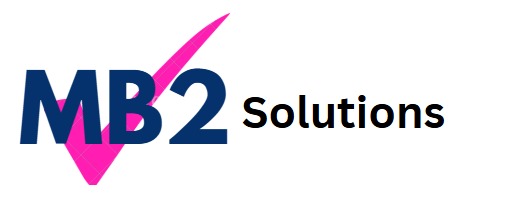
SAQA ID
118792

Credits
209
Artificial Intelligence Software Developers build Artificial Intelligence (AI) functionality into software applications through integrating and implementing AI algorithms and logic into the deliverables of an Information Technology (IT) project.
Developers teach the machine to solve problems the way a human would through the use of programming. They create, test and deploy code. These developers also assist in converting machine learning Application Programming Interface (APIs) so that other applications can use them.
This qualification is made up of compulsory Knowledge, Practical Skill and Work Experience Modules1. Knowledge Modules
- Overview of Artificial Intelligence, Level 4, 2 Credits
- Introduction to Mathematics and Statistics, Level 4, 10 Credits.
- Analytical Thinking and Problem Solving, Level 4, 3 Credits.
- Data, Databases and Data Visualisation, Level 4, 8 Credits.
- Computing Theory, Level 4, 8 Credits.
- Introduction to Artificial Intelligence, Machine Learning, Deep Learning, Level 4, 5 Credits.
- Introduction to Governance, Legislation and Ethics, Level 4, 1 Credit.
- Fundamentals of Design Thinking and Innovation, Level 4, 1 Credit.
- 4IR and Future Skills, Level 4, 4 Credits.
- Artificial Intelligence, Level 5, 12 Credits.
- Machine Learning, Level 5, 16 Credits.
- Deep Learning, Level 5, 16 Credits.
Total number of credits for Knowledge Modules: 86
2.Practical Skill Modules
- Mathematics and Statistics for Programming, Level 4, 8 Credits.
- Problem Definition, Analytical Thinking and Decision-Making, Level 4, 2 Credits.
- Access, Analyse and Visualise Structured Data Using Spreadsheets, Level 4, 4 Credits.
- Use SQL to Communicate with a Database, Level 5, 4 Credits.
- Build a simple AI solution using Python, Level 5, 8 Credits.
- Use Python Data Scraping to Populate Database Table in SQL,
Level 5, 4 Credits. - Use Machine Learning to Build an AI solution in Python, Level 5,
6 Credits. - Use Deep Learning to Build an AI Neural Network Architecture in Python, Level 5, 10 Credits.
- Use Deep Learning to Build an AI Neural Network Architecture in TensorFlow, Level 5, 10 Credits.
- Function Ethically and Effectively as a Member of a Multidisciplinary Team, Level 4, 3 Credits.
- Participate in a Design Thinking for Innovation Workshop, Level 4,
4 Credits.
Total number of credits for Practical Skill Modules: 63
3.Work Experience Modules
- AI Solution Design Interpretation and Development, Level 5,
20 Credits. - AI Solution Performance Testing, Level 5, 20 Credits.
- AI Solution Deployment, Modification and Improvement, Level 5,
20 Credits.
Total number of credits for Work Experience Modules: 60
The minimum entry requirement for this qualification is:
- NQF Level 4 qualification.

Pricing

Delivery Mode
Hybrid Full Time/Online

Campus Location
Dynamic
What will a qualified learner be able to do?
- Interpret solution design documentation and develop AI solution.
- Train the AI model through a machine learning process and test the performance to ensure that model accuracy is strictly maintained within the selection framework.
- Deploy the AI solution and maintain the solution to ensure model accuracy is strictly maintained.
What are the benefits of AI?
- AI is facilitating major advances in healthcare.
- it improves customer service and the human experience.
- In short, AI has revolutionised the ease and dynamics with which humans interact with their environment.
Who is this Training Course for?
The typical learners identified for this qualification are
- Qualified learners from TVET colleges
- New entrants into the sector and existing employees who have experience in this field, but without formal recognition of skills and competencies.
- Professionals who want to augment their careers may also access this qualification
The qualification is structured to enable individuals without prior learning in the field of information technology to acquire the knowledge and skills to seamlessly enter the field of work.
No professional registration or licencing is expected for AI Software Developers to seek employment in the sector. AI Software Developers can be employed as AI Researchers, Machine Learning Engineers, Machine Learning Researchers, AI Architects, AI Engineers, AI Technicians, AI Developers, Business Intelligence (BI) Developers and working with engineering teams in the field of intelligent robotics.
Exit Level Outcomes
- Gather and interpret data from various sources to define an AI solution to a real-life world problem.
- Critically analyse data and create a solution design document (SDD) that defines an artificial intelligence (AI) solution that solves a real-life world problem.
- Choose a type or category of AI learning and the relevant algorithm to analyse data, gain insight and make subsequent prediction, or create a determination with it.
- Train the AI model through a machine learning process and ensure that model accuracy is strictly maintained within the selection framework.
- Select a machine learning system and build an artificial intelligence (AI) solution to a real-life world problem.
- Implement and run the AI solution on a selected platform and check the prediction results in real-life use, then select and run the AI solution on a platform.
Integrated Assessment
1. Integrated Formative Assessment
The skills development provider will use the curriculum to guide them on the stipulated internal assessment criteria and weighting. They will also apply the scope of practical skills and applied knowledge as stipulated by the internal assessment criteria. This formative assessment together with work experience leads to entrance in the integrated external summative assessment.
2. Integrated summative assessment
An external integrated summative assessment, conducted through the relevant QCTO Assessment Quality Partner, is required for the issuing of this qualification. The external integrated summative assessment will focus on the exit level outcomes and associated assessment criteria.
The external integrated summative assessment will be conducted through a theoretical assessment and the evaluation of practical tasks at decentralised approved assessment sites in a simulated environment and conducted by an assessor(s) registered with the relevant AQP.

